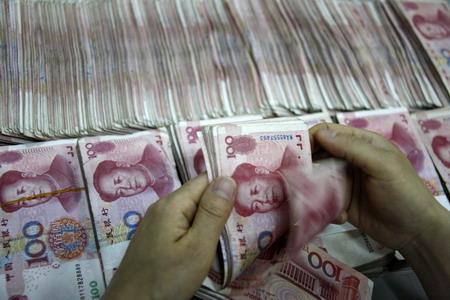
|
|
China's central bank has emphasized the need for a 'prudent' monetary policy. [Photo / China Daily] |
SHANGHAI - The People's Bank of China, the nation's central bank, reiterated on Monday that it would give priority to "stabilizing the general price level", a policy promoted during the three-day Central Economic Work Conference that ended on Sunday.
Zhou Xiaochuan, the central bank's governor also emphasized the need to strengthen the relevance, flexibility and effectiveness of financial control, and to adopt a "prudent" monetary policy, from the current "moderately loose" one to lock in liquidity.
China's consumer price index, the major gauge of inflation, jumped to a 28-month high of 5.1 percent in November.
Meanwhile, new lending by banks reached a higher-than-expected level of 7.46 trillion yuan ($1.12 trillion) in the first 11 months of the year.
The lending spree will make the government's annual loan target of 7.5 trillion yuan difficult to achieve.
"The government's tone concerning next year sent a clear signal that macro policy will continue to spur the economy steadily in the mid-term, but will, meanwhile, curb inflation and asset bubbles," said Li Maoyu, a senior analyst at Changjiang Securities.
The central bank announced on Friday that it will raise the reserve requirement ratio (RRR) for commercial lenders by 50 basis points from Dec 20 to mop up excess liquidity. It is the sixth such move this year.
After the hike, about 350 billion yuan of lending is expected to be frozen. However, the central bank left interest rates unchanged.
The RRR increase, in the short term, will directly help domestic financial institutions to achieve the new loan goal set by the government for 2010. However, new lending is likely to reach a "very high level" in the first quarter of 2011, given the ample liquidity in the banking system, according to Liu Ligang, head of China Economics at the Australia & New Zealand (ANZ) Banking Group, in a recent research note.
"We do expect CPI inflation to moderate from the current high levels as food prices ease again. However, China does face a structural increase in its inflation rate so long as it continues," said Ashley Davis, Asia economist at Germany's second-largest lender Commerzbank AG.
Six of the nation's biggest banks, including the Industrial and Commercial Bank of China and China Construction Bank, were told by the central bank to extend the special 50 basis-point increase in RRR, which was due to expire shortly, for another three months, Reuters said on Monday, citing unidentified sources.
In addition, under inflationary pressures, China will lower the growth aim of its M2, the broad money supply gauge, to 16 percent in 2011 from this year's 17 percent, according to unnamed authority sources quoted in China Securities Journal on Tuesday.
New bank lending is likely to reach 7.5 trillion yuan next year, it said, but added that the new loan scale has yet to be finalized. M2 had hit 71.03 trillion yuan by the end of November, a 19.5 percent increase year-on-year.
"The current tightening policy is far from sufficient, more aggressive measures are needed," said Ma Zihui, a senior researcher at Samsung Economic Research Institute.
"An interest rate hike remains the most effective policy measure to curb inflation and rein in asset bubbles," said ANZ's Liu.
China aims to achieve an 8 percent rise in GDP next year, and to ensure CPI is no higher than 4 percent in the meantime, according to a report in Guangzhou Daily on Tuesday.
source:China Daily





